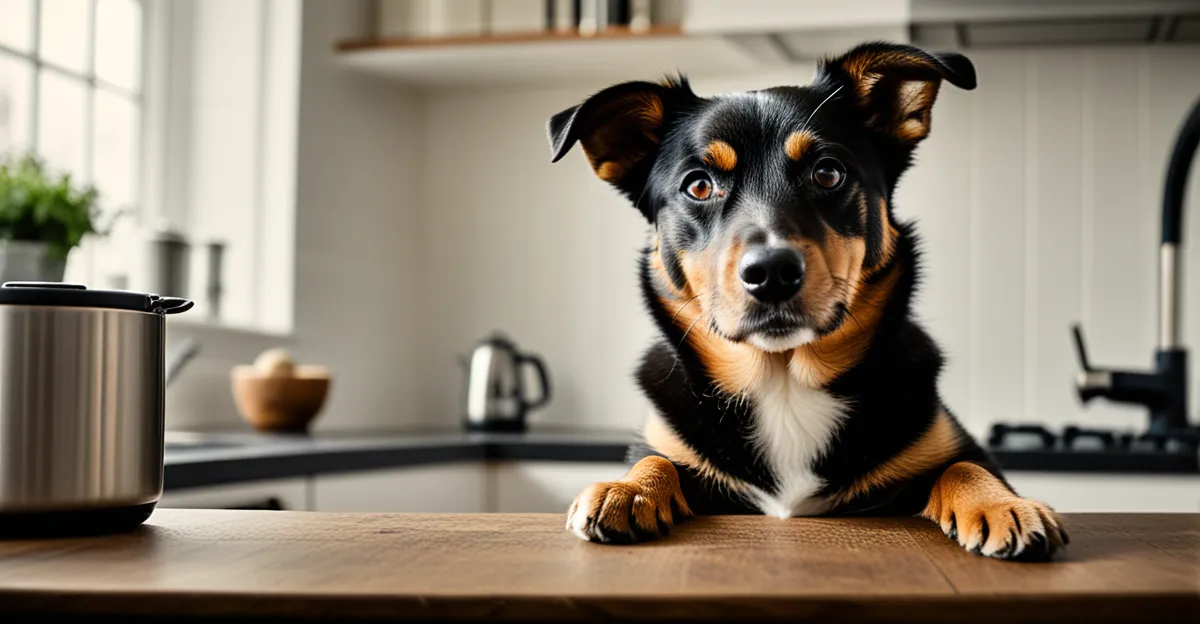Essential Environmental Needs for UK Pets
Creating a pet environment UK that supports health and comfort is paramount for all pet owners. This means ensuring spaces meet the core principles of pet welfare UK: safety, cleanliness, and suitability for the species’ natural behaviors. For dogs, it involves providing enough space to move freely and cool resting areas, especially since some breeds tolerate UK climates differently. Cats benefit greatly from vertical spaces and hiding spots, reflecting their instinctive preferences.
Small mammals, like rabbits or guinea pigs, require secure, well-ventilated enclosures that protect from drafty UK conditions while allowing social interaction. The variation in outdoor and indoor environments across the UK demands flexible solutions tailored to each pet’s needs.
In the same genre : How Can Owning Pets in the UK Improve Your Quality of Life?
Adhering to pet care basics UK means aligning with established welfare standards and legal obligations. The Animal Welfare Act, along with RSPCA guidelines, emphasizes that environments must promote well-being, prevent distress, and allow natural behaviors. This compliance is not only a legal requirement but enhances your pet’s quality of life. Remember, a thoughtful, species-specific environment addresses physical needs and fosters mental stimulation, forming the cornerstone of responsible pet ownership in the UK.
Managing Home Temperature and Climate for Pets
Balancing a pet-safe temperature UK in the home is essential for your animal’s health. Pets like dogs and cats thrive within a comfortable temperature range, usually between 18-22°C. Exceeding these boundaries risks heat stress or hypothermia, especially for breeds sensitive to cold or heat.
Also read : What Are the Most Common Health Issues in UK’s Favourite Pets?
Adjusting your home’s climate control to seasonal UK variations protects pets through chilling winters and warmer summers. Insulation plays a crucial role; well-insulated homes minimize drafts, an important factor for smaller or short-haired animals. Heating pads or heated bedding can help maintain warmth for vulnerable pets during colder months.
UK weather often brings elevated humidity and dampness, creating discomfort or worsening respiratory conditions for pets. To manage this, use dehumidifiers or improve ventilation to keep air dry and fresh. Monitoring humidity levels is part of good pet care in UK weather and prevents mould growth that can irritate your pet’s respiratory system.
By tailoring your household’s temperature and climate to your pet’s needs, you uphold vital pet welfare UK standards, ensuring their comfort, health, and overall well-being year-round.
Adhering to UK Regulations and Welfare Standards
Understanding UK pet laws is fundamental for responsible pet ownership. The Animal Welfare Act 2006 places clear duties on owners to provide a suitable environment, covering essentials like adequate space, temperature, and protection from suffering. Non-compliance can lead to legal consequences and harm to your pet’s well-being.
The RSPCA guidelines complement legislation by offering practical advice on creating environments that respect natural behaviours and prevent distress. These guidelines emphasize that “suitable environment” means more than shelter: it includes enrichment, appropriate social interaction, and freedom from undue stress.
Meeting housing requirements involves ensuring enclosures or living spaces are secure, hygienic, and species-appropriate. For example, dogs need room to exercise, while small mammals require protection from drafts common in UK homes and gardens.
Pet owners should regularly consult resources from government bodies like DEFRA and local councils to stay informed on updates or local regulations. This proactive approach guarantees compliance and reflects best practices in pet welfare UK.
Adhering strictly to these standards is not merely legal obligation; it fundamentally improves quality of life, making your pet environment UK safe, enriching, and aligned with recognised welfare expectations.
Enhancing Pet Comfort and Safety Indoors
Creating a pet-safe home UK is vital to protect your animals from common household hazards. Choosing comfortable bedding for pets involves selecting materials that offer warmth, softness, and are easy to clean to maintain hygiene. Memory foam and washable covers are excellent options, supporting pressure points and preventing infections.
Safety also extends to the furnishings and materials around pets. Avoid toxic plants, sharp objects, or small items that can be swallowed accidentally. Opt for durable, pet-friendly fabrics resistant to claws and chewing. Establish designated safe zones where pets can retreat, reducing stress and promoting relaxation within the pet environment UK.
Preventing hazards specific to UK homes means addressing dampness, electrical cords, and accessible cleaning products. Secure loose wires and store chemicals out of reach to reduce risks. Regular inspection of the pet’s indoor space aligns with pet care basics UK, ensuring ongoing safety and comfort.
Investing in well-considered indoor environments enhances pet welfare UK by minimizing health dangers and supporting a calm, stimulating home atmosphere tailored to each species’ needs.
Enrichment and Mental Well-being Activities
Mental stimulation is vital for pet welfare UK, preventing boredom and associated behavioural issues. Offering diverse pet enrichment UK options tailored to your pet’s species enhances their natural instincts and keeps them engaged. For dogs, puzzle feeders and interactive pet toys UK promote problem-solving and physical activity. Cats benefit from climbing structures paired with toys that mimic prey, such as feather wands or laser pointers.
Small mammals also require stimulation; tunnels, chew toys, and foraging games replicate their natural behaviours, supporting both mental and physical health. Rotating toys and activities regularly prevents habituation, which can reduce their effectiveness.
DIY enrichment ideas using common UK household materials are practical and inexpensive. For example, cardboard boxes for hiding or treat-dispensing containers can be easily adapted. These activities should always be safe and appropriate, encouraging exploration without stress.
In summary, maintaining a varied and species-specific approach to mental stimulation for pets is a core aspect of excellent pet care basics UK. It nurtures well-being, enriches the pet environment UK, and supports lifelong health.
Outdoor Access, Gardens, and Urban Considerations
Designing a secure garden for pets ensures outdoor safety while supporting natural behaviours. For dogs, fencing must be robust and of appropriate height to prevent escapes. Cats benefit from enclosed outdoor enclosures or “catios” that allow fresh air safely. Small mammals require predator-proof runs to protect against local wildlife common in UK gardens.
Outdoor pet safety UK also involves monitoring hazards such as toxic plants, pesticides, and pond access. Regular garden inspections can identify risks, while shaded areas and fresh water stations help pets cope with variable UK weather.
When considering pet care in cities UK, confined spaces and noise can stress animals. Urban owners should prioritize exercise routines, socialisation, and using secure leads or harnesses during walks. Roof terraces or balconies adapted with safety netting offer limited but valuable outdoor access for city pets.
Compliance with local regulations including microchipping and licensing is crucial for urban and rural environments alike. Adjusting environments according to location demands flexible solutions for a balanced pet environment UK that respects both safety and enrichment needs.
Hygiene, Cleanliness, and Allergen Control
Maintaining pet hygiene UK is vital for both your pet’s health and your household’s cleanliness. Regular cleaning of living areas ensures a clean pet space free from dirt, waste, and parasites that may cause infections or discomfort. This includes daily removal of soiled bedding, prompt litter box care for cats, and routine cage cleaning for small mammals.
To reduce odours and allergens, frequent vacuuming of pet hair and dander is essential, especially in UK homes where dampness can exacerbate smells. Using a vacuum with a HEPA filter captures fine particles, improving air quality and minimising respiratory issues.
Managing allergies and pets UK involves limiting exposure to irritants by washing pet bedding and toys weekly and selecting hypoallergenic materials when possible. When choosing cleaning products, opt for UK-approved, non-toxic formulations safe for animals to avoid chemical sensitivities or accidental poisoning.
A scheduled cleaning routine incorporating these steps supports optimal pet welfare UK by preventing bacterial growth and allergen build-up. This approach benefits pet owners and pets alike, creating a healthier, more comfortable living environment tailored to the specific needs of various species within the broader pet care basics UK framework.





